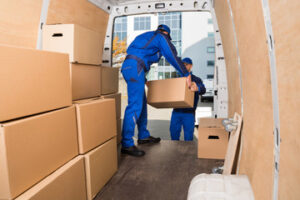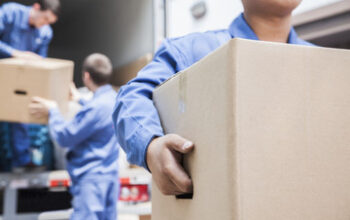Moving can be a stressful and expensive experience. To keep costs low, make sure to budget your money wisely and prepare ahead of time.
To help you do so, we’ve rounded up some of the best relocation tips from experts. These hacks will save you time, money, and energy. Plus, they’ll help you avoid common pitfalls and setbacks on moving day. Visit https://www.danurimoving.com to avail such services.
The cost of moving can vary greatly depending on the distance between your current home and the new one, how much you need to move, and whether you want to hire professional movers or do it yourself. To make sure you have enough funds to cover everything, it’s important to create a budget before starting the process.
Creating a budget for your move can help you plan and control expenses, as well as reduce stress during the process. It will also allow you to make smart decisions about what items to bring and those that can wait.
Start with a list of all your belongings and any special or valuable items. If possible, take photos or videos of these items so you can easily locate them when you get to your new house.
Once you have an inventory of all your possessions, research prices for packing materials and moving companies to get an idea of what you’re likely to spend. Having several estimates from different companies helps you find the best deal.
If you are moving across the country, it’s a good idea to factor in travel costs as well. This can include gas, airport fees, and hotel accommodations. Using an online fuel cost calculator can help you figure out how much you’ll be spending on your trip.
Another important expense to consider is the cost of storage for any personal items that you’ll be unable to move into your new home right away. Public storage facilities are available in many areas, and prices vary by location and size of the unit.
It’s a good idea to add extra money to your budget for miscellaneous expenses, such as child or pet care and unforeseen repairs or other emergencies. This will give you some wiggle room in case of a breakdown or unexpected bill, and it will save you from having to borrow money from your emergency fund.
A long-distance move can mean a significant increase in your monthly budget. That means you may have to cut back on non-essentials like eating out, shopping, and entertainment.
If you’re moving to a city with a higher cost of living, your budget will need to be more strict than in a lower-cost area. You may need to limit your dining out or cancel subscriptions to streaming services.
The quickest way to make your budget stretch is by trimming expenses that you don’t use on a regular basis, such as gym memberships and restaurant meals. You can also stop buying unnecessary goods and start using your savings account for purchases that will be needed immediately after you arrive in your new city.
It can be difficult to create an emergency fund, but it’s essential if you want to avoid debt after a move. You should set aside a minimum of three months’ worth of expenses for this purpose.
Moving is a time-consuming process that requires plenty of planning and effort. But if you follow a few simple tips for packing your home for a move, you can have a more efficient and less stressful experience.
One of the most important packing tips is to make sure you don’t pack things that you no longer need or want in your new home. You can do this by decluttering before you begin packing. Take inventory of everything you own so you know what to pack and sell or donate.
Aside from this, you’ll also want to get rid of anything that doesn’t fit in your new home or doesn’t have any function. It’s best to start your decluttering efforts at least six weeks before your move.
This gives you plenty of time to sort through your belongings and decide what needs to go in the move and what can be donated or sold. Once you’ve figured out what to keep, you can then begin to pack up your home.
Another important packing tip is to create a centralized area for all of your supplies. You can set this up wherever you have room to work, like a closet or counter.
Once you’ve decided on a spot, it’s important to be organized and get the job done as quickly as possible. That means making sure your centralized area is well-stocked with boxes, tape, markers, and other supplies so you can easily get the job done.

